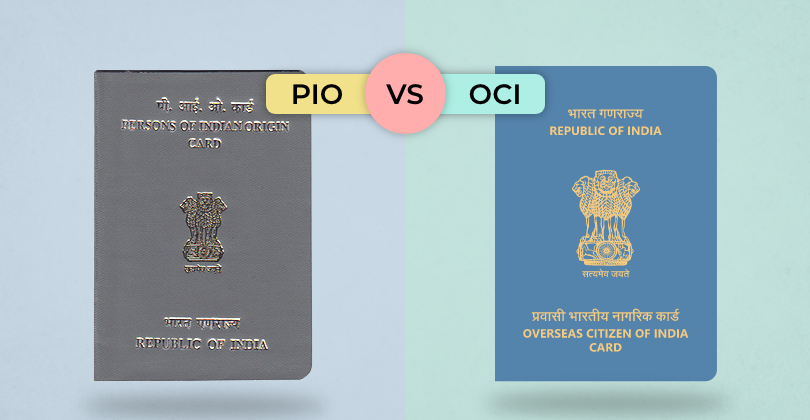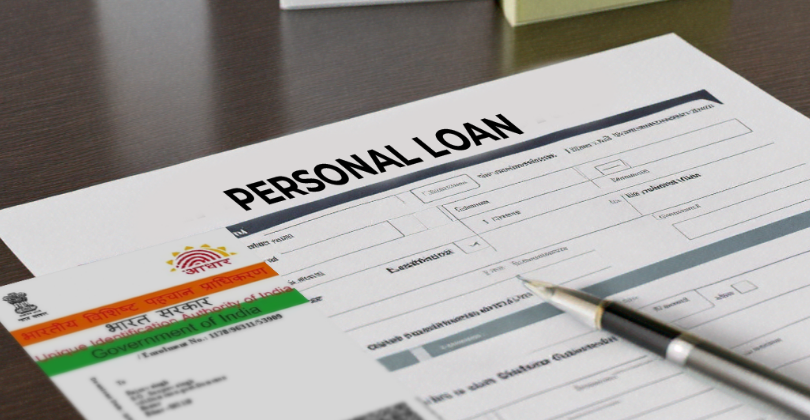Are you of Indian origin and living abroad? You've probably come across terms like PIO and OCI. These cards offer different benefits, but it can
Ever seen those advertisements for personal loans with attractive interest rates? They're tempting, but the reality is you might be able to get an even better deal. Here's the thing: lenders aren't always offering their rock-bottom rates upfront.
By negotiating the interest rate on a personal loan, you could save a significant amount over the life of the loan. Ready to learn how to get the best rate possible? Keep reading for our ultimate guide to negotiating lower interest rates on personal loans!
Interest Rate on Personal Loan: Understanding the Basics
The interest rate on a personal loan is the APR (Annual Percentage Rate) you'll be charged for borrowing the funds. It essentially represents the cost of borrowing from the lender. This rate is a key factor influencing your monthly loan payment (EMI) and the total amount you'll repay over the loan term.
Here's a breakdown of how interest rates work on personal loans:
-
Fixed vs. Variable Rates
Personal loan rates can be fixed or variable, meaning they remain constant throughout the tenure or fluctuate based on market conditions. -
Factors Affecting Interest Rates
Several factors influence the interest rate you're offered, including your credit score, income, loan amount, loan purpose, and repayment term. Generally, a higher credit score or lower loan amount can lead to a more favourable interest rate. -
Impact of Interest Rates
Even a small difference in the interest rate can significantly impact your total loan cost. For example, a personal loan of Rs. 7 lakhs with a 15% interest rate for 3 years will cost you more than the same loan at a 12% interest rate.
Understanding how loan interest calculators work on personal loans empowers you to negotiate for a better rate and potentially save a substantial amount during repayment.
Tips for Negotiating Lower Interest Rates on Personal Loans
While lenders set their baseline interest rates, there's often room for negotiation. Here are some effective strategies to help you secure a lower interest rate on your personal loan:
-
Improve Your Credit Score
This is the golden rule. A higher credit score (ideally above 750) demonstrates your creditworthiness. Improve your credit score by repaying on time, keeping credit card utilisation low, and avoiding unnecessary credit inquiries. -
Research and Compare
Don't settle for the first offer you receive. Research and compare interest rates and terms from various lenders, including banks, credit unions, and online lenders. Utilise online comparison tools to find competitive rates quickly. -
Be Informed
Knowledge is power. The more you know about personal loan rates, fees, and the loan process, the better equipped you'll be to advocate for yourself. Research average interest rates for your credit profile and loan amount. -
Leverage Your Relationship with the Lender
Being an existing customer with a good repayment history at a bank can be advantageous. Explain your situation and inquire if they can offer you a better rate based on your loyalty. -
Highlight Your Financial Stability
Present evidence of your financial stability, such as proof of income, a low debt-to-income ratio, and healthy savings. This will reassure lenders of your ability to repay the loan. -
Negotiate Loan Amount and Term
Sometimes, a slightly smaller loan amount or a shorter loan term can incentivise lenders to offer a lower interest rate due to decreased risk. -
Consider a Co-Signer
A co-signer with excellent credit can significantly strengthen your application and potentially qualify you for a lower interest rate. Choose a co-signer responsibly who understands their financial obligations if you can't meet repayments. -
Examine the Process for Calculating Interest
Personal loans can come with either fixed or floating interest rates. Each has its own implications for interest rate calculations. With a fixed interest rate, the APR remains constant throughout the loan term. In comparison, floating interest rates are not set for the entire loan term and can fluctuate based on market conditions or an index rate set by the lender. -
Keep an Eye Out for Special Deals
Many lenders offer promotional interest rates or special deals throughout the year. These can be particularly attractive during festive seasons or to attract new customers. However, remember to compare the overall loan terms, including fees and other charges, before finalising a decision based solely on the interest rate.
Factors to Consider When Negotiating Interest Rates on Personal Loans
Negotiating a lower interest rate on your personal loan requires a strategic approach. Beyond your negotiation skills, several factors influence your chances of success.
Here are some key considerations to keep in mind:
-
Repayment Capacity
This refers to your ability to comfortably repay the loan within the stipulated term. Lenders assess your repayment capacity through various factors, including employment history. -
Income
Your income plays a significant role in determining the interest rate you qualify for. Generally, a higher income translates to a lower interest rate. This is because lenders perceive borrowers with a larger income as less risky. -
Credit Utilisation
The amount of credit you're using compared to the total amount available (credit utilisation ratio) plays a big role in how worthy a borrower you are seen as (creditworthiness). A lower credit utilisation ratio (ideally below 30%) indicates responsible credit management and can lead to a more favourable interest rate. -
Debt-to-Income Ratio (DTI)
Lenders consider your debt-to-income ratio (DTI) to assess your ability to repay a loan. This metric shows what portion of your gross monthly income goes towards existing debt obligations.
Ready to take control of your financial future?
Negotiating low-interest personal loans requires preparation and knowledge. By understanding the factors lenders consider and employing effective negotiation strategies, you can significantly increase your chances of securing a more affordable loan. Remember, the lowest personal loan interest rate translates to substantial savings over the loan term, freeing up your finances for other goals.
Check your eligibility for a personal loan on KreditBee's platform today and explore the possibilities of low-interest loans. Let KreditBee help you navigate your financial needs seamlessly.
Frequently Asked Questions
Generally, a credit score above 750 is considered favourable for securing a lower interest rate on a personal loan. However, lenders consider various factors, so maintaining a healthy credit history is key.
Yes! Pre-approved offers are a starting point, and negotiation is still possible. Research current rates and highlight your financial strengths to potentially get a better deal.
Fixed rates offer predictability as your monthly payment stays the same throughout the loan. Floating rates can be lower initially but can fluctuate based on market conditions. Choose the option that aligns with your risk tolerance and financial goals.
Unrealistic promises of extremely low rates, pressure to make a quick decision, or lenders asking for upfront fees are potential red flags. Always compare offers thoroughly and avoid lenders with shady practices.
A co-signer with excellent credit can strengthen your application and potentially qualify you for a lower interest rate. However, choose a co-signer responsibly, one who understands their financial obligations if you can't meet repayments.
AUTHOR
KreditBee As a market leader in the Fintech industry, we strive to bring you the best information to help you manage finances better. These blogs aim to make complicated monetary matters a whole lot simpler.







